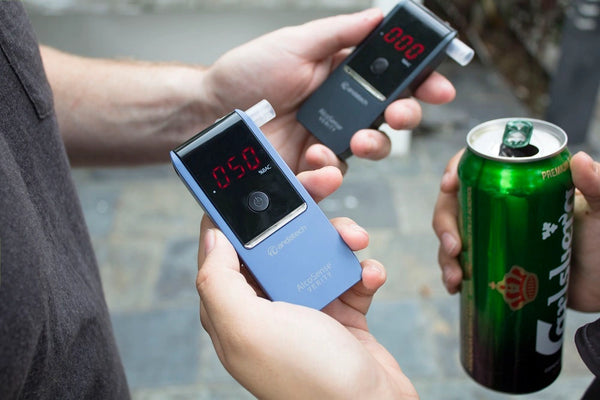Alcoholism or alcohol addiction is the dependence on alcohol a person has from constant binge drinking and can have severe and detrimental effects on mental health. According to alcoholthinkagain, 1 in 3 adults (33%) that drink alcohol exceed the Australian Alcohol Guidelines and put themself at risk of alcohol-related disease or injury, particularly liver diseases, but can also significantly harm one’s mental health.
Here are some ways in which alcohol addiction can impact mental well-being:
Increased risk of mental disorders
Alcohol addiction is often associated with an increased risk of developing or exacerbating mental health conditions such as depression, anxiety disorders, bipolar disorders, and post-traumatic stress disorder (PTSD)
Co-occurring disorder
Many individuals with alcohol addiction also have mental illnesses known as co-occurring mental health disorders. Co-occurring disorders can be dire and present significant challenges to your well-being and ability to function. Co-occurring disorders can complicate treatment and recovery, as these issues must be rectifyedsimultaneously
Withdrawal symptoms
When individuals with alcohol addiction stop drinking or significantly reduce their alcohol consumption, they may experience alcohol withdrawal symptoms. These withdrawal symptoms include anxiety, depression, irritability, restlessness, insomnia, and even hallucinations or seizures, drastically affecting mental health.
Impaired cognitive function
Chronic alcohol abuse can lead to cognitive impairments such as memory loss, difficulty concentrating, and impaired decision-making abilities. These cognitive deficits can negatively affect your mental health, well-being, and quality of life.
Relationship problems and social isolation
Alcohol addiction often leads to strained relationships with family, friends, and coworkers due to a lack of affection, respect, and commitment. Social isolation and the breakdown of support systems can contribute to feelings of loneliness, depression, and anxiety.
Increased suicide risk
Alcohol addiction is associated with a higher risk of suicide. Alcohol addiction has the potential to shatter a person’s life who previously had no history of health issues. With the presence of underlying mental health conditions, combined with the harmful effects of alcohol on judgment and impulse control, these factors could unquestionably contribute to suicide.
It’s crucial to recognize that alcohol is a complex condition that requires professional help. If you or someone you know is struggling with alcohol addiction, seeking support from healthcare professionals, addiction specialists, or support groups can be crucial for recovery and well-being.
How breathalysers help in treating addiction
Overcoming alcohol addiction is a challenging journey that requires infallible willpower, commitment, support and the right tools. Breathalysers are effective tools that support individuals on the path to recovery.
LEARN MORE: How to treat an alcohol addiction
Despite being commonly associated with testing for legal or employment purposes, breathalysers can be powerful allies to be used in the fight against alcohol addiction. Using breathalysers plays a crucial role in beating alcoholism through the following:
Setting personal accountability
Breathalysers assist in addiction recovery by promoting personal accountability. By having a personal breathalyser, individuals can regularly monitor their BAC levels to ensure that they do not drink more than what is recommended, and it also helps them make informed decisions regarding their alcohol consumption.
Building trust and a support system
For individuals on the path to recovery, gaining or regaining the trust of loved ones can be a long and challenging process. By regularly using a breathalyser, especially one that comes with proof of testing features like the AlcoSense Nexus or Elite 3 BT, they can demonstrate their commitment to sobriety and provide tangible progress of their recovery. This transparency will help foster an environment of trust and support.
Reinforcing positive behaviour
Celebrating milestones is something that is to be celebrated, especially on the challenging road to recovery. Breathalysers can be used to mark progress and reinforce positive behaviour. Each time the recovering addict has passed a breath test by blowing zero, it serves as a tangible validation of their commitment to a better, alcohol-free life. This reinforcement strengthens their resolve, boosts self-confidence and motivates them to continue striving to make positive changes.
Empowering self-control
By having access to immediate and accurate BAC readings, they can objectively assess their level of sobriety, which, in turn, empowers them to resist temptations, say no to peer pressure and prioritise their well-being.
Summary
In the battle against alcohol addiction, breathalysers provide recovering addicts with a valuable tool on their challenging road to recovery. From promoting personal accountability to helping rebuild trust, breathalysers can play a pivotal role in helping individuals overcome addiction.
By incorporating breathalyser technology into recovery programmes, loved ones can help enhance the effectiveness of support systems and empower individuals to achieve long-term sobriety.
Browse through Andatech’s wide selection of handheld workplace breathalysers and personal breathalysers to look for the right unit to suit your needs today.
Written by Andrew Beovich.






